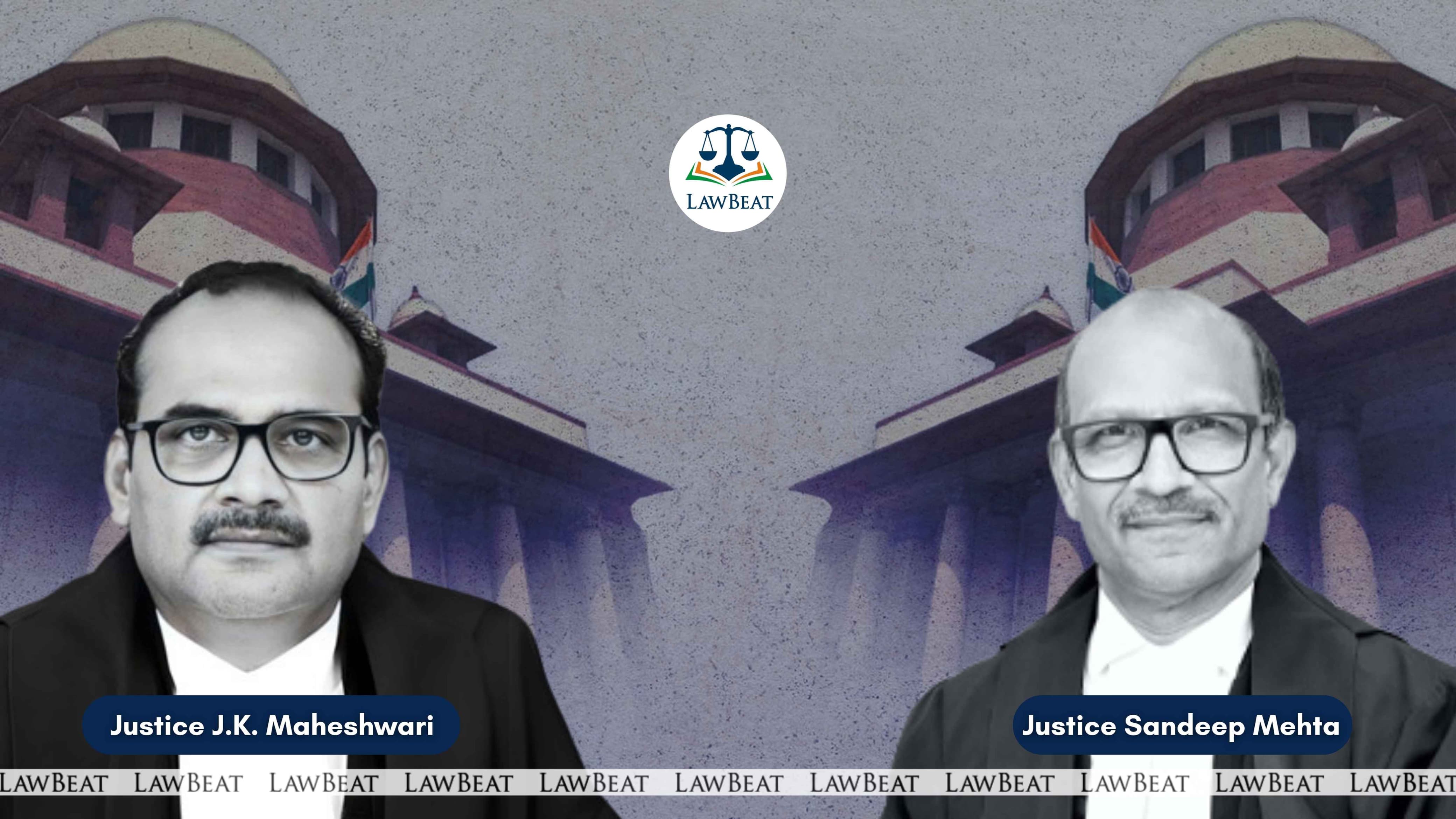Non-examination of complainant can't be fatal to disciplinary proceedings: SC

Court opined that the high court division bench fell into grave error in substituting the standard of proof required in a criminal trial vis-a-vis the disciplinary enquiry conducted by the employer
The Supreme Court on February 4, 2025, said that non-examination of the complainant cannot be fatal to disciplinary proceedings against a delinquent employee, as it overturned a 2012 Calcutta High Court judgment that had set aside the dismissal of an assistant engineer (civil) by the Airport Authority of India over his alleged involvement in a bribery case.
A bench of Justices J K Maheshwari and Sandeep Mehta held that the high court's division bench's decision was unsustainable in the eyes of law. The bench allowed the appeal by the authority and upheld the dismissal of respondent Pradip Kumar Banerjee.
"In the case at hand, the subject matter concerns a domestic enquiry, where the strict rules of evidence prohibiting admissibility of confessional statements recorded by the police officials do not apply. Likewise, non-examination of the decoy cannot be treated to be fatal in the domestic enquiry where other evidence indicts the delinquent officer," the bench said.
Court also found itself unable to sustain the finding of the division bench that the non-examination of the complainant was fatal to the case of the appellant-authority.
It is well-settled principle of law that even in a criminal case pertaining to demand and acceptance of illegal gratification, the courts are empowered to record conviction, where the decoy turns hostile, and the prosecution case is based purely on the evidence of the trap laying officer and the trap witnesses, the bench pointed out.
In the case, the respondent was arrested with a co-accused for demanding and accepting a bribe from a contractor. The CBI court, Alipore found him guilty. The high court, however, in 2004 set aside his conviction and sentence.
The apex court noted that the trap-laying officer, D N Biswas was examined during the course of disciplinary proceedings and he supported the case of the appellant authority to the hilt. His evidence was substantially corroborated by the other departmental witnesses including S K Dasgupta (Assistant Commissioner of Police, Economic Offences Wing and Detective Department) and M K Bagchi (Executive Engineer).
"Thus, the division bench clearly erred in holding that non-examination of the complainant was fatal to the disciplinary proceedings conducted by the appellant authority," the bench said.
The division bench also observed that the disciplinary authority and the appellate authority did not consider the representation of the respondent and acted without application of mind while imposing the penalty of dismissal from service against the respondent.
However, the bench found, on a perusal of the orders passed by the disciplinary authority and the appellate authority, that the representation submitted by the respondent had been duly adverted to and objectively considered by both authorities and the same was found to be devoid of substance.
It is trite law that in disciplinary proceedings, it is not necessary for the disciplinary authority to deal with each and every ground raised by the delinquent officer in the representation against the proposed penalty and detailed reasons are not required to be recorded in the order imposing punishment if he accepts the findings recorded by the enquiry officer, the apex court highlighted.
"All that is required on the part of the disciplinary authority is that it should examine the evidence in the disciplinary proceedings and arrive at a reasoned conclusion that the material placed on record during the course of enquiry establishes the guilt of the delinquent employee on the principle of preponderance of probabilities. This is precisely what was done by the disciplinary authority and the appellate authority while dealing with the case of the respondent," the bench said.
It also opined the division bench fell into grave error in substituting the standard of proof required in a criminal trial vis-a-vis the disciplinary enquiry conducted by the employer.
It is a settled principle of law that the burden laid upon the prosecution in a criminal trial is to prove the case beyond reasonable doubt. However, in a disciplinary enquiry, the burden upon the department is limited and it is required to prove its case on the principle of preponderance of probabilities, the bench highlighted.
Court found that the single judge, while dealing with the writ petition filed by the respondent against the orders passed by the disciplinary authority and the appellate authority, considered the entire factual matrix in detail and dismissed the writ petition by a detailed and well-reasoned judgment of June 29, 2011.
With regard to the exercise of intra-court jurisdiction, the bench said, in an intra-court writ appeal, the appellate court must restrain itself and interference with the judgment passed by the single judge is permissible only if the judgment is perverse or suffers from an error apparent in law.
"However, the division bench, in the present case, failed to record any such finding and rather, proceeded to delve into extensive reappreciation of evidence to overturn the judgment of the single judge," the bench said.
The court thus held that the division bench, while exercising the intra-court writ appellate jurisdiction erred in interfering with the concurrent findings recorded by the disciplinary authority, the appellate authority as affirmed by the single judge.
"We are of the view that the disciplinary authority was fully justified in imposing the penalty of dismissal from service upon the respondent. The appellate authority too has duly applied its mind to the facts available on record while affirming the order of the disciplinary authority and rejecting the appeal filed by the respondent. These two orders have rightly been affirmed by the single judge of the High Court while dismissing the writ petition filed by the respondent," the bench said.
Case Title: Airport Authority of India Vs Pradip Kumar Banerjee
